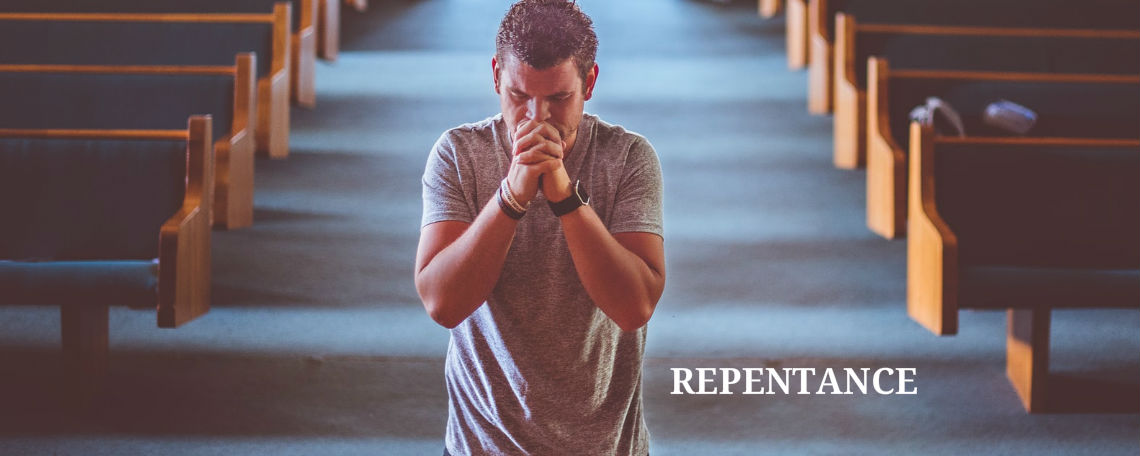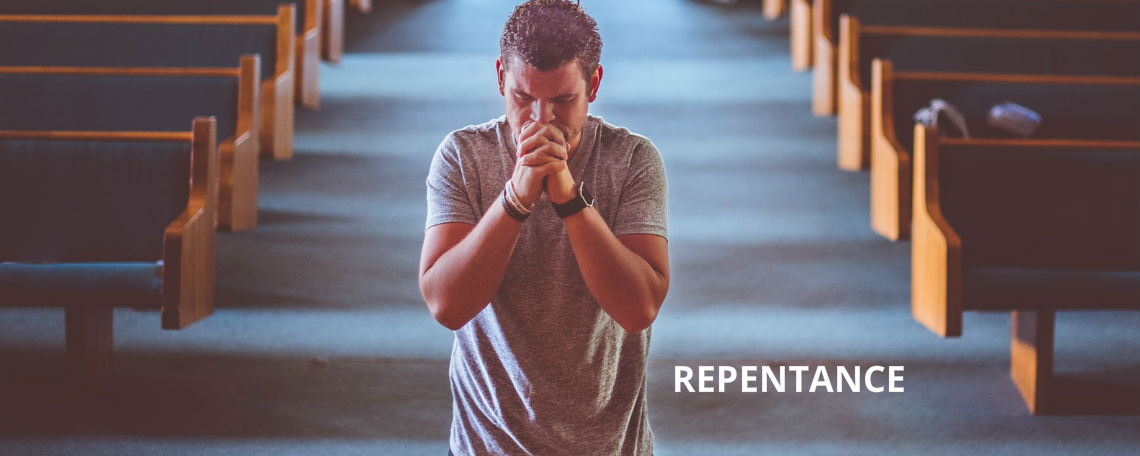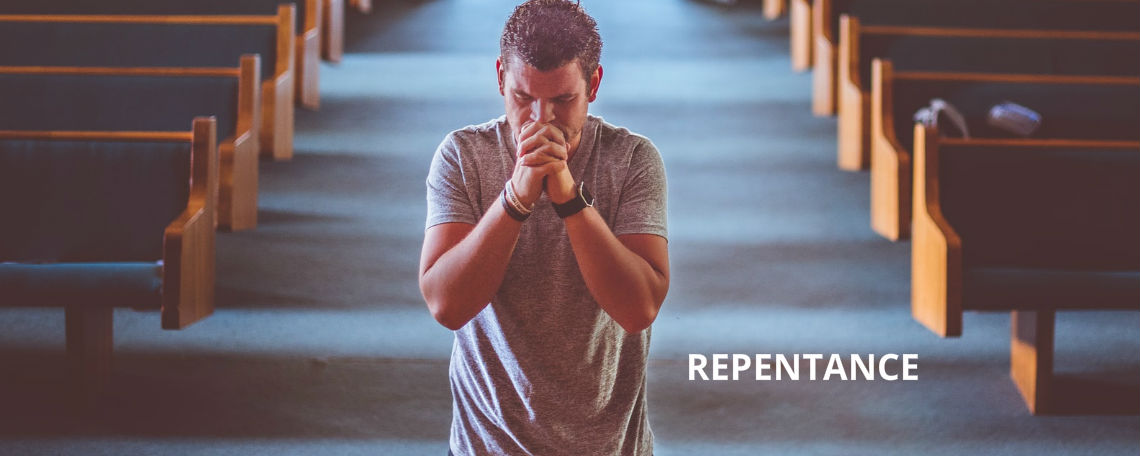BELIEF & AFFIRMATION
The Church of God of Prophecy is firm in its commitment to orthodox Christian belief. We affirm that there is one God eternally existing in three persons: Father, Son, and Holy Spirit. We believe in the deity of Christ, His virgin birth, His sinless life, the physical miracles He performed, His atoning death upon the Cross, His bodily resurrection, His ascension to the right hand of the Father, and His personal return in power and glory at His second coming. We profess that regeneration by the Holy Spirit is essential for the salvation of sinful mankind. We believe the sinner is brought to an awareness of the need for salvation through the convicting work of the Holy Spirit. We believe that in sanctification by the blood of Christ, one is made holy. We affirm the present, active ministry of the Holy Spirit who guides the Church and by whose indwelling and empowerment we are able to live godly lives and render effective service to God and others. We believe in the oneness and ultimate unity of believers for which our Lord prayed, and that this should be visibly displayed “that the world may know, see, and believe” God’s glory, the coming of His Son, and the great love He has for His people (John 17:20–23). We are committed to the sanctity of the marriage bond and the importance of strong, loving Christian families.
REPENTANCE
The presence and work of the Holy Spirit in the world and upon the human heart through the gospel of Jesus Christ (John 16:8–11) brings CONVICTION, an awareness and acknowledgement of sin against God and the need to confess that guilt with Godly sorrow (2 Corinthians 7:10). In short, repentance means not only being sorry for sin, but a turning from and forsaking the old life (sin habits) for a new walk by faith in God through the Holy Spirit and in company with the people of God (Acts 2:42). The result of repentance is salvation, a work that is both instantaneous (new birth—John 3:3–8) and life-inclusive, beginning with the giving of new life by the Holy Spirit to the believer and climaxing with a glorified body (Hebrews 9:28; Mark 1:15; Luke 13:3; Acts 3:19). Repentance results in Justification, Regeneration, or what is called the “Born Again” experience as explained below.
BELIEF & AFFIRMATION
The Church of God of Prophecy is firm in its commitment to orthodox Christian belief. We affirm that there is one God eternally existing in three persons: Father, Son, and Holy Spirit. We believe in the deity of Christ, His virgin birth, His sinless life, the physical miracles He performed, His atoning death upon the Cross, His bodily resurrection, His ascension to the right hand of the Father, and His personal return in power and glory at His second coming. We profess that regeneration by the Holy Spirit is essential for the salvation of sinful mankind. We believe the sinner is brought to an awareness of the need for salvation through the convicting work of the Holy Spirit. We believe that in sanctification by the blood of Christ, one is made holy. We affirm the present, active ministry of the Holy Spirit who guides the Church and by whose indwelling and empowerment we are able to live godly lives and render effective service to God and others. We believe in the oneness and ultimate unity of believers for which our Lord prayed, and that this should be visibly displayed “that the world may know, see, and believe” God’s glory, the coming of His Son, and the great love He has for His people (John 17:20–23). We are committed to the sanctity of the marriage bond and the importance of strong, loving Christian families.
BELIEF & AFFIRMATION
The Church of God of Prophecy is firm in its commitment to orthodox Christian belief. We affirm that there is one God eternally existing in three persons: Father, Son, and Holy Spirit. We believe in the deity of Christ, His virgin birth, His sinless life, the physical miracles He performed, His atoning death upon the Cross, His bodily resurrection, His ascension to the right hand of the Father, and His personal return in power and glory at His second coming. We profess that regeneration by the Holy Spirit is essential for the salvation of sinful mankind. We believe the sinner is brought to an awareness of the need for salvation through the convicting work of the Holy Spirit. We believe that in sanctification by the blood of Christ, one is made holy. We affirm the present, active ministry of the Holy Spirit who guides the Church and by whose indwelling and empowerment we are able to live godly lives and render effective service to God and others. We believe in the oneness and ultimate unity of believers for which our Lord prayed, and that this should be visibly displayed “that the world may know, see, and believe” God’s glory, the coming of His Son, and the great love He has for His people (John 17:20–23). We are committed to the sanctity of the marriage bond and the importance of strong, loving Christian families.
JUSTIFICATION
Therefore being justified by faith we have peace with God through our Lord Jesus Christ. By whom also we have access by faith into this grace wherein we stand, and rejoice in hope of the glory of God” (Romans 5:1, 2). Justification is both a state and an act: On the part of the repentant one, it is the state of being without offense toward God. On God’s part, it is His act in forgiving the actual sins for which one has repented and declaring the individual accepted in a new relationship. The individual is said to be justified by faith in Jesus Christ; that is, one’s sins are covered (atoned for), and God no longer holds that person accountable for those sins. New spiritual life has begun (2 Corinthians 5:17), a beginning sometimes referred to as “Regeneration.”
REGENERATION/BORN AGAIN
Regeneration describes the work of God in providing new spiritual life in the believer. Human beings without Christ are “dead in trespasses and sins” (Ephesians 2:1) and must be made alive or regenerated through the Holy Spirit (Titus 3:5). This giving of new spiritual life through Jesus Christ enables right relationships with God, the ability to worship Him in spirit and in truth (John 4:24), and is simultaneous with Justification (previous page). It is God’s gracious act to rekindle the spiritual life lost in Adam (1 Corinthians 15:22) so one may now walk after the Spirit and not after the flesh (Romans 8:1–11). Accordingly, the individual is said to be “Born Again” or born of God (1 John 5:1). In responding to the double question of Nicodemus, “How can a man be born when he is old? Can he enter the second time into his mother’s womb and be born?” Jesus answered, “Verily, verily, I say unto thee, except a man be born again of water and of the Spirit, he cannot enter into the kingdom of God” (John 3:4, 5). To be born again, then, is to become a new creation in Christ, a child of God, justified and regenerated as a result of true repentance and faith in the finished work of Jesus Christ. There is no other way to enter the kingdom. This entrance into a new life of discipleship to Christ (Acts 2:42) engages the believer in actively seeking more of God, fellowshipping and worshipping with God’s people, and intentionally obeying God’s Word as the believer learns how to “possess his vessel (whole body) in sanctification and honour” (1 Thessalonians 4:4).
SANCTIFICATION
Sanctification, like salvation, ultimately spans the entire life of the believer. Initially, it is a work of grace subsequent to being justified, regenerated, or born again. It is an instantaneous work, which both sets one apart for God (1 Corinthians 1:2) and crucifies and cleanses the old nature, enabling the believer to be free from the dominant rule of sin: “Knowing this, that our old man is crucified with him, that the body of sin might be destroyed, that henceforth we should not serve sin. For, he that is dead is freed from sin” (Romans 6:6, 7). “And such were some of you: but ye are washed, but ye are sanctified, but ye are justified in the name of the Lord Jesus, and by the Spirit of our God” (1 Corinthians 6:11). This dethroning of the old nature, this cleansing, this setting apart, places upon the believer the scriptural demand to “mortify the deeds of the body” through the Spirit (Romans 8:12, 13) and to “Mortify therefore your members which are upon the earth; fornication [sexual immorality], uncleanness, inordinate [abnormal] affection, evil concupiscence [desire for earthly things], and covetousness, which is idolatry” (Colossians 3:5). Second Peter 3:17, 18 further encourages growth in God’s grace and in the knowledge of Jesus Christ: “Ye therefore, beloved, seeing ye know these things before, beware lest ye also, being led away with the error of the wicked, fall from your own steadfastness. But grow in grace, and in the knowledge of our Lord and Saviour Jesus Christ. To him be glory both now and for ever. Amen.” There is then in sanctification, a responsibility on the part of the believer to “put off” some habits and practices, and to “put on” others, which means there must be intentionality to holiness (Ephesians 4:22–32). Sanctification empowers us against sin’s control; the believer responds with a renewed mind to be transformed into the image of Christ (Romans 12:1, 2) and to be holy in life and conduct (2 Corinthians 7:1).
HOLINESS
Holiness is a command of our Lord: “Be ye holy; for I am holy” (1 Peter 1:14–16), the state of being free from sin (sin’s dominance) made possible by God’s sanctifying and cleansing work (Romans 6:11–14; 1 Corinthians 6:11), and further sustained by active, whole-hearted pursuit of a life of Christ-likeness on the part of the maturing believer. “For the grace of God that bringeth salvation hath appeared to all men, teaching us that, denying ungodliness and worldly lusts, we should live soberly, righteously, and godly, in this present world” (Titus 2:11, 12). “Follow peace with all men, and holiness, without which no man shall see the Lord” (Hebrews 12:14). “For God hath not called us unto uncleanness, but unto holiness” (1 Thessalonians 4:7). “Having therefore these promises, dearly beloved, let us cleanse ourselves from all filthiness of the flesh and spirit, perfecting holiness in the fear of God” (2 Corinthians 7:1). Holiness must also be the Church’s collective goal as the body of Christ to demonstrate the praises (virtues) of Him “who hath called [us] out of darkness into his marvellous light” (1 Peter 2:9, 10).
BAPTISM WITH THE HOLY SPIRIT
BAPTISM WITH THE HOLY SPIRIT
Then Peter said unto them, Repent, and be baptized every one of you in the name of Jesus Christ for the remission of sins, and ye shall receive the gift of the Holy [Spirit]. For the promise is unto you, and to your children, and to all that are afar off, even as many as the Lord our God shall call” (Acts 2:38, 39). The baptism with the Holy Spirit as it occurred at Pentecost and in subsequent places in the Book of Acts (8:14–17; 10:44–46; 19:2–7) is a definite experience that is subsequent to the salvation and sanctification experiences or may accompany them in a somewhat simultaneous way. Jesus said to His disciples, “ . . . for he dwelleth with you, and shall be in you” (John 14:17). This indwelling is a definite, instantaneous experience described in the Scriptures by the word “baptism” and is accompanied by the evidence of speaking in other tongues as the Spirit gives utterance. The baptism is also the Holy Spirit’s enduement of the believer for service in the kingdom, as the Church was empowered at Pentecost to go forth with the message of the gospel: “But ye shall receive power, after that the Holy [Spirit] is come upon you: and ye shall be witnesses unto me both in Jerusalem, and in all Judaea, and in Samaria, and unto the uttermost part of the earth” (Acts 1:8). This experience should not be confused with water baptism, regeneration, or sanctification.
The Holy Spirit “is come” [has been sent by Christ—Acts 2:33] to “reprove the world of sin, of righteousness, and of judgment,” to serve as the church’s guide and director, and to reveal the things of Christ (John 16:7–15). As such, it is important for believers to seek both the baptism (Acts 2:38, 39) and His fullness (Ephesians 5:18) in order that they may become familiar with His leadership and guidance and cooperatively participate in His work, both for personal Christian maturity and for service in Christ’s mission to the world.
SPEAKING WITH OTHER TONGUES
BAPTISM WITH THE HOLY SPIRIT
BAPTISM WITH THE HOLY SPIRIT
Speaking in (with) other tongues—languages (magnifying God through uttering His wonderful works in languages normally unknown to the speaker—Acts 2:4–8; 11; 10:44–46) is common in the Book of Acts to describe the coming of the Holy Spirit upon believers as clearly stated in the foregoing scriptural texts. Acts 19:6 also shows the same result (speaking in tongues and prophesying) when the apostle Paul laid hands on twelve believers in the city of Ephesus for them to receive the Holy Spirit. In regulating the order and use of spiritual gifts to the Corinthian saints (1 Corinthians 12–14), Paul also allows for the private use of tongues in prayer to God and indicates that this edifies the individual believer ’s spirit (14:2–4). The gifts of tongues and interpretation of tongues for public use in the assembled congregation are, of course, to be distinguished from the baptism with the Spirit as applied in the individual’s experience. Paul makes this clear by referring to his own experience (cf. Acts 9:17–19) when he says, “I thank my God, I speak with tongues more than ye all” (1 Corinthians 14:18). While closing his admonition by prioritizing the gift most useful for the public edification of all (prophecy), he was careful to add, “and forbid not to speak with tongues” (v. 39).
Following the biblical pattern in Acts, the Church of God of Prophecy and other classical Holiness/Pentecostal churches teach that speaking with other tongues as the Spirit gives utterance is the initial evidence (observable by others) of the baptism with the Holy Spirit. However, it is not to be regarded or sought as an “end-all” experience. Daily walking and living in the Spirit (Romans 8:1–14) will continue to build Christian character (the fruit of the Spirit) and should be the desire and practice of every believer.
Then Peter said unto them, Repent, and be baptized every one of you in the name of Jesus Christ for the remission of sins, and ye shall receive the gift of the Holy [Spirit]. For the promise is unto you, and to your children, and to all that are afar off, even as many as the Lord our God shall call” (Acts 2:38, 39). The baptism with the Holy Spirit as it occurred at Pentecost and in subsequent places in the Book of Acts (8:14–17; 10:44–46; 19:2–7) is a definite experience that is subsequent to the salvation and sanctification experiences or may accompany them in a somewhat simultaneous way. Jesus said to His disciples, “ . . . for he dwelleth with you, and shall be in you” (John 14:17). This indwelling is a definite, instantaneous experience described in the Scriptures by the word “baptism” and is accompanied by the evidence of speaking in other tongues as the Spirit gives utterance. The baptism is also the Holy Spirit’s enduement of the believer for service in the kingdom, as the Church was empowered at Pentecost to go forth with the message of the gospel: “But ye shall receive power, after that the Holy [Spirit] is come upon you: and ye shall be witnesses unto me both in Jerusalem, and in all Judaea, and in Samaria, and unto the uttermost part of the earth” (Acts 1:8). This experience should not be confused with water baptism, regeneration, or sanctification.
The Holy Spirit “is come” [has been sent by Christ—Acts 2:33] to “reprove the world of sin, of righteousness, and of judgment,” to serve as the church’s guide and director, and to reveal the things of Christ (John 16:7–15). As such, it is important for believers to seek both the baptism (Acts 2:38, 39) and His fullness (Ephesians 5:18) in order that they may become familiar with His leadership and guidance and cooperatively participate in His work, both for personal Christian maturity and for service in Christ’s mission to the world.
Then Peter said unto them, Repent, and be baptized every one of you in the name of Jesus Christ for the remission of sins, and ye shall receive the gift of the Holy [Spirit]. For the promise is unto you, and to your children, and to all that are afar off, even as many as the Lord our God shall call” (Acts 2:38, 39). The baptism with the Holy Spirit as it occurred at Pentecost and in subsequent places in the Book of Acts (8:14–17; 10:44–46; 19:2–7) is a definite experience that is subsequent to the salvation and sanctification experiences or may accompany them in a somewhat simultaneous way. Jesus said to His disciples, “ . . . for he dwelleth with you, and shall be in you” (John 14:17). This indwelling is a definite, instantaneous experience described in the Scriptures by the word “baptism” and is accompanied by the evidence of speaking in other tongues as the Spirit gives utterance. The baptism is also the Holy Spirit’s enduement of the believer for service in the kingdom, as the Church was empowered at Pentecost to go forth with the message of the gospel: “But ye shall receive power, after that the Holy [Spirit] is come upon you: and ye shall be witnesses unto me both in Jerusalem, and in all Judaea, and in Samaria, and unto the uttermost part of the earth” (Acts 1:8). This experience should not be confused with water baptism, regeneration, or sanctification.
The Holy Spirit “is come” [has been sent by Christ—Acts 2:33] to “reprove the world of sin, of righteousness, and of judgment,” to serve as the church’s guide and director, and to reveal the things of Christ (John 16:7–15). As such, it is important for believers to seek both the baptism (Acts 2:38, 39) and His fullness (Ephesians 5:18) in order that they may become familiar with His leadership and guidance and cooperatively participate in His work, both for personal Christian maturity and for service in Christ’s mission to the world.













